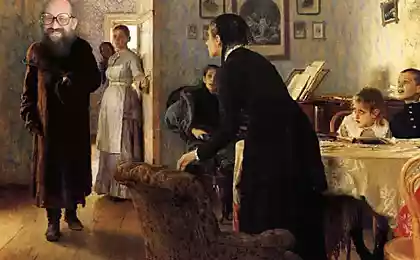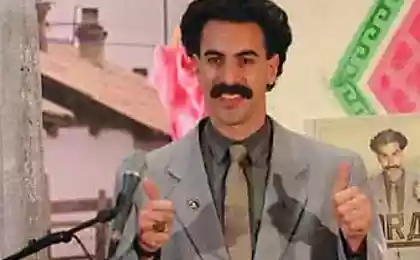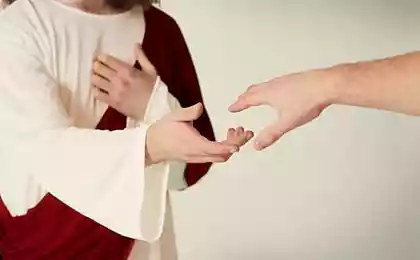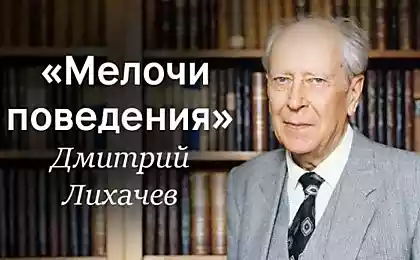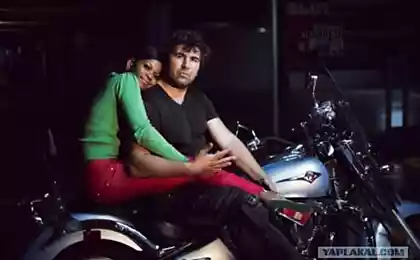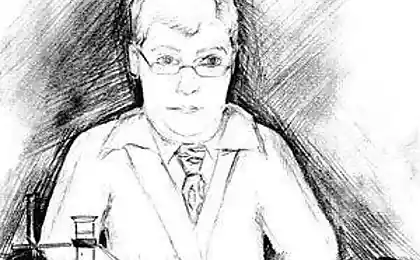215
The Atypical Story of Decency
Eternal valuesIn the nineteenth year of the revolution, Stalin had the idea (let’s call it that) to arrange a “purge” in Leningrad. He invented a way that seemed subtle to him: the exchange of passports.
And tens of thousands of people, mainly nobles, began to refuse them. And these nobles long ago turned into conscientious Soviet employees with cheap briefcases made of pig leather.
The refusal of the passport was followed by immediate expulsion: either closer to the tundra or to the hot sands of Karakum.
Leningrad wept.

Dmitry Dmitrievich Shostakovich, 1923.
Shortly before that Shostakovich got a new apartment.
She was three times bigger than he was on Marata Street. Don't stand there empty, naked. Shostakovich scraped some money, brought it to Sofia Vasilievna and said:
- Please buy some furniture, Mom.
He went on business to Moscow, where he stayed for two weeks.
And when he returned to his new apartment, he could not believe his eyes: in the rooms there were Pavlovsk and Alexander redwood chairs, tables, a wardrobe, a bureau. Almost enough.
- And all this, Mom, you bought with the pennies I left you?
- We have, you see, terribly cheaper furniture, — said Sofia Vasilievna.
- Why would I?
- Nobles were expelled. Well, they were in a hurry to give things away. Well, let's say this bureau used to be...
And Sophia Vasilyevna began to tell how much such and such a thing used to cost and how much is now paid for it.
Dmitriy Dmitrievich is sour. His thin lips clenched.
- My God! .

Sophia Vasilievna Shostakovich, mother of D.D. Shostakovich, 1902.
And, hastily pulling out of his pocket, he took a pencil from the table.
- How much did these chairs cost before the disaster, Mother? Now, how much did you pay? Where did you buy them? Is this the bureau? And the couch?
Sophia Vasilievna answered exactly, not quite understanding why he was asking her about it.
Writing everything down in his sharp, delicate, staggering handwriting, Dmitry Dmitrievich nervously pulled out of the book a sheet and said, passing it to his mother:
- I'm going to get some money. At least from the ground. And tomorrow, Mother, in the morning, you'll hang them at these addresses. Everyone has close friends in Leningrad. They will send the money there and there. These chairs used to cost one and a half thousand, you bought them for four hundred. And behind the bureau and behind the couch... For everything. People, mother, misfortune, how to use it? Right, Mom? .
- Of course, I did everything as Mitya wanted, Sophia Vasilyevna told me.
- I'm sure.
What is it? .
I think it's normal decency. But how we miss her in life! This ordinary decency!published
© Anatoly Marienhof
P.S. And remember, just by changing your consciousness – together we change the world!
Source: izbrannoe.com/news/lyudi/netipichnaya-istoriya/
And tens of thousands of people, mainly nobles, began to refuse them. And these nobles long ago turned into conscientious Soviet employees with cheap briefcases made of pig leather.
The refusal of the passport was followed by immediate expulsion: either closer to the tundra or to the hot sands of Karakum.
Leningrad wept.

Dmitry Dmitrievich Shostakovich, 1923.
Shortly before that Shostakovich got a new apartment.
She was three times bigger than he was on Marata Street. Don't stand there empty, naked. Shostakovich scraped some money, brought it to Sofia Vasilievna and said:
- Please buy some furniture, Mom.
He went on business to Moscow, where he stayed for two weeks.
And when he returned to his new apartment, he could not believe his eyes: in the rooms there were Pavlovsk and Alexander redwood chairs, tables, a wardrobe, a bureau. Almost enough.
- And all this, Mom, you bought with the pennies I left you?
- We have, you see, terribly cheaper furniture, — said Sofia Vasilievna.
- Why would I?
- Nobles were expelled. Well, they were in a hurry to give things away. Well, let's say this bureau used to be...
And Sophia Vasilyevna began to tell how much such and such a thing used to cost and how much is now paid for it.
Dmitriy Dmitrievich is sour. His thin lips clenched.
- My God! .

Sophia Vasilievna Shostakovich, mother of D.D. Shostakovich, 1902.
And, hastily pulling out of his pocket, he took a pencil from the table.
- How much did these chairs cost before the disaster, Mother? Now, how much did you pay? Where did you buy them? Is this the bureau? And the couch?
Sophia Vasilievna answered exactly, not quite understanding why he was asking her about it.
Writing everything down in his sharp, delicate, staggering handwriting, Dmitry Dmitrievich nervously pulled out of the book a sheet and said, passing it to his mother:
- I'm going to get some money. At least from the ground. And tomorrow, Mother, in the morning, you'll hang them at these addresses. Everyone has close friends in Leningrad. They will send the money there and there. These chairs used to cost one and a half thousand, you bought them for four hundred. And behind the bureau and behind the couch... For everything. People, mother, misfortune, how to use it? Right, Mom? .
- Of course, I did everything as Mitya wanted, Sophia Vasilyevna told me.
- I'm sure.
What is it? .
I think it's normal decency. But how we miss her in life! This ordinary decency!published
© Anatoly Marienhof
P.S. And remember, just by changing your consciousness – together we change the world!
Source: izbrannoe.com/news/lyudi/netipichnaya-istoriya/
